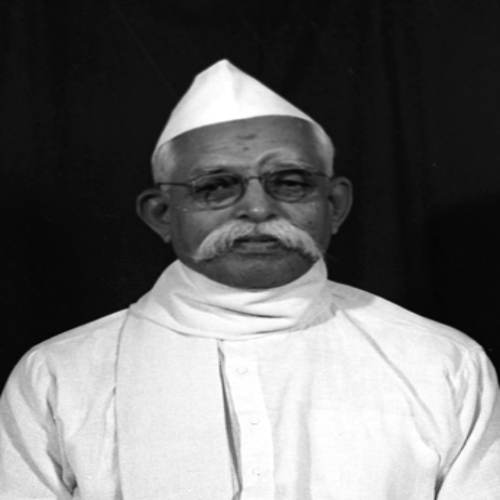Early Life
Ravi Shankar Shukla was born on 2 August 1877 in the city of Sagar in Madhya Pradesh, a region that fell within Central Provinces and Berar under the British Raj. Born into a wealthy and scholarly family, his early education was undertaken in a Gurukul in Sagar After completing his primary education, Shukla was constantly on the move. He began his High School education in Rajnandgaon and later finished in Raipur High School. By 1895 he had completed his intermediate studies from Jabalpur’s Robertson College and relocated yet again to Nagpur, where he did his graduation from Hislop college.
After graduating in 1899, he continued in Hislop for a short fellowship in law. This was the beginning of his political journey, where he began his association with Congress and found his inspiration in Bal Gangadhar Tilak. Thereafter, he completed his law studies by privately taking Calcutta University’s law exams in 1907 and eventually set up a legal practice in Rajnandgaon.
Role in India’s Independence Movement
While still in Hislop, Shukla accompanied his professor to the 1898 Amravati Congress session, sparking his initial interest in the freedom struggle. The 1897 sedition case against Tilak also had a profound effect on Shukla. He closely followed the case developments and began a deep engagement with Tilak’s writing, from spending hours traversing through Tilak’s columns in Kesari to reading his book Geeta Rahasya. Predictably, this influenced Shukla to ideologically veer towards a more assertive militant nationalism espoused by Tilak and others.
He began his political career in the backdrop of the 1899-1900 famine that severely affected the Central Provinces. After writing to the Chief Commissioner for an opportunity to work in the famine-affected regions, Shukla was appointed famine officer in one of the camps. His work for the people here gained attention and pushed him into political prominence.
Shukla’s politics was influenced by his deep interest in Hindu philosophy. This interest pushed him to join the Theosophical Society of India and exposed him to the writings of Annie Besant. His lifelong association with the Hindu Mahasabha’s Madan Mohan Malviya saw him spearhead brahmin movements in the region. He set up the region’s Kanyakabja Sabha, an association specific to his brahmin community, and held its first session in Nagpur in 1912. The Mahasabhas he held in the next few years saw him emerge as the foremost leader of the brahmins in the region.
By now Shukla had become a seasoned Congressman who attended each annual Congress session and in 1921 was inducted into the All-India Congress Committee. The same year he became a member of the Raipur District Council and would serve as President of the Council from 1927-37. In 1938, he was elected leader of the Congress Party in the Legislative Assembly of the Central Provinces and Berar. For the next one year, he also headed the government in the province until he stepped down in protest against the British decision to force India into the Second World War, in line with Congress policy.
Contribution to Constitution Making
Shukla was elected to the Constituent Assembly from Central Provinces and Berar on a Congress Party ticket.
He was an unapologetic Hindi chauvinist, who alongside Raghu Vira, Govind Das Seth and Purushottam Das Tandon, stubbornly insisted on making Hindi the national language. Granville Austin referred to him as one of the most militant leaders among the Constituent Assembly’s Hindi extremist group. He headed a special committee of the Central Provinces Legislative Assembly that pushed the Constituent Assembly to frame the Constitution in Hindi and make Hindi the national language with English as an option only for a five-year transitional period. He also aggressively campaigned against the inclusion of Urdu or Hindustani and lobbied for a ‘pure’ sanskritised Hindi.
Shukla opposed the separate listing of other Indian languages in the Constitution, claiming that this was detrimental to the stability of the country. He saw this Schedule of the Constitution as a hindrance to the introduction of Hindi as India’s official language.
Later Contributions
Between 1946-50, Shukla served as the Premier of the Central Provinces and Berar. His role was crucial in ensuring that all the princely states in the Central Provinces region merged with India. After the new State of Madhya Pradesh was formed in 1956, Shukla became the first Chief Minister of the State, but this was short-lived.
He passed away on 31 December 1956, aged 80.
Key Writings
In 1935 Shukla began a weekly Hindi Magazine called ‘Mahakoshal’ from Nagpur.
He also ran an English language paper, ‘Nagpur Times’ to propagate Congress’ policy nationally.
- Life And Legacy Of The First Family Of Madhya Pradesh – The Shuklas by Aashish Chandorkar (Swarajya, 2017)
- Pt. Ravi Shankar Shukla (Pt. Ravi Shankar Shukla University, Raipur)

